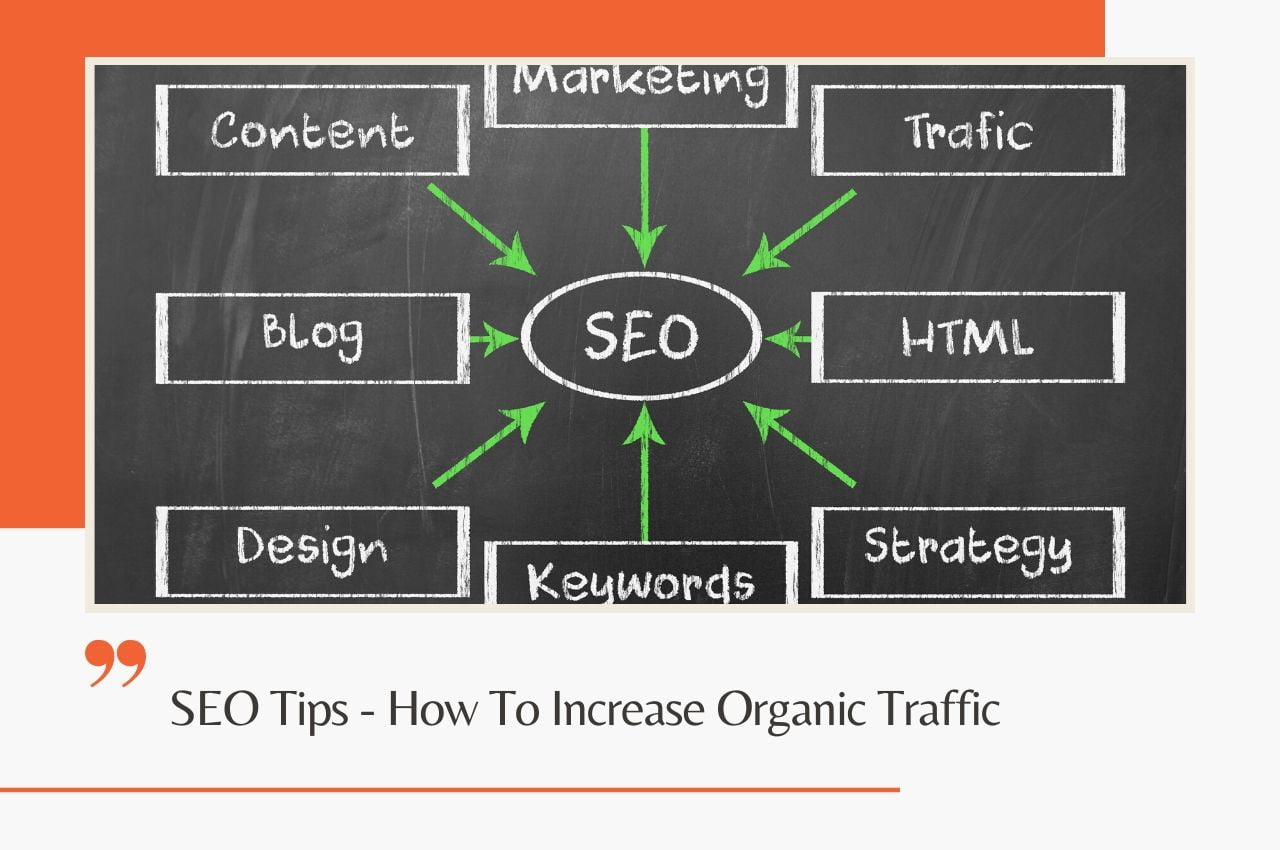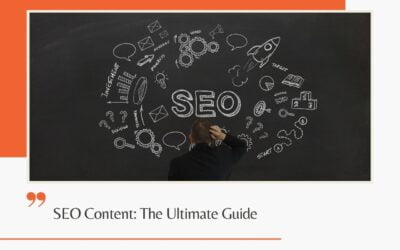SEO or Search Engine Optimisation is an approach to search engine strategy that allows you to improve your ranking on the web. SEO consist of a series of techniques or tools that help enhance traffic to your website to attract more potential customers. Over time these techniques have been changed to go hand in hand with technology.
Search engines are platforms that find and organise all the information that is on the internet. Search engines deliver content around your search intent based on keywords you use to search for information.
What Is Organic SEO?
Organic SEO consists of multiple subcategories which should help your website gain better placement in SERP – in the unpaid search result.
It simply means you don’t need to pay for advertising to see your website on the first page of search engine platforms. Which, in return, deliver organic “free” traffic.
Organic SEO matter for a simple reason, almost 75% of searches didn’t pass the first page of search result. You guessed it – no ranking, no traffic, no sales.
By definition, any website with a search box which fetches a list of results relevant to your search query is a search engine. You probably use many of them without even realising it. The leading search engines are:
- Yahoo
- Bing
- DuckDuckGo
- Baidu
- Ecosia
- And many more
How Organic SEO Work?
If Google main goal is to offer users the most relevant content, then your goal should be to build a website that is worthy of earning top ranking.
If you want top ranking, then it is crucial to implement strategies that work together to improve your site performance.
Among the tips, you should aim for the following:
You must create useful and engaging content.
Make sure you produce quality content, original and intended for users.
You must take care of the navigation of your website.
Make sure your website is not too heavy and slow to load. Having good navigation will silo your site and users will stay on your site longer.
Decent speed and user-friendly navigation will reduce bounce rate and improve the crawl rate.
Have a structure for mobile devices.
Many users use phones to search for content, it is must have a structure that adapts to these devices.
Use internal links.
This will help Google to crawl your website and index the content properly.
Optimise titles and descriptions.
Use catchy phrases and meaningful description. It will help you to capture the attention of potential customers in search results.
Multimedia content is a must.
Visuals improve user engagement and encourage visitors to stay longer on your website. You can use videos, podcasts, images, presentations to have a more dynamic page.
The keywords
Proper keyword research is essential for website success. You must have the right keywords and know how to use them correctly.
Why Is SEO Important For Businesses?
Do you want your company to become a leader – authority in your niche? Search engine optimisation can be a nightmare for many website owners but for others; it is an opportunity to get noticed.
SEO can help you gain visibility on the internet so that consumers can find your business easier and become potential buyers.
All companies need to have a digital presence to differentiate themselves from the competition. Currently, most people are looking for everything they need online, and if your business is not there, it will be as if it does not exist.
Even if there are many different ways how to approach SEO reality is SEO is divided into two primary groups that are:
- On-page
- Off-page
On-page SEO is spread around the information and technical factors on your website, while off-page SEO relies on external factors pointing to your site.
Intend of every SEO aspect is to improve your website position in search called SERPs by using relevant keywords that attract the attention of potential customers and thus convert into sales.
It is a part of digital marketing and overall business strategy that increase visibility and the number of visits thanks to search engines.
With the right SEO result, you will be able to make your company stand out. Who does not want to be on the first page of Google and other search engines? Everyone who has a website is expecting to gain new customers and increase sales.
If your website appears on the second or third page of search result, your probability of getting more traffic falls dramatically. Organic traffic will be drastically reduced, resulting in fewer sales or leads.
According to recent studies, more than 30% of traffic is destined for the first result in Google. Experts also claim that more than 75% of users do not pass the first page of search engines. If you want to succeed online, you should aim for top positions in different search engines.
That is why organic SEO is an essential ingredient for your company to be successful online.
Prospect Of Organic SEO
Visibility in the form of brand awareness and increased traffic which can covert in sales and store visits is what all companies can gain by using organic SEO.
Although all above we mentioned is important, it is not the only advantage that SEO offers. Another benefit you will get is credibility. When search engines rate your website worthy of getting at the top of the search result, consumers will get the idea that you are trustworthy.
By being in top positions, users will want to buy your products or services, and thus, the revenue will increase. Organic SEO has one of the best ROI compared to other marketing tactics.
Seo Terminology: Terms You’ll Need To Master
In search engine optimisation, there are many terms, acronyms, and abbreviations that you should know. Below you will find 14 SEO terms that you should add to your dictionary:
Algorithm: This is the program used by search engines to determine where a website should be ranked. Many factors make up an algorithm; some are not public.
Backlink: It is a link that leads to your web page. These links can be internal, that is, from one page on your site to another. They can also be external, from an external website that links to your website.
Black hat SEO: They are a series of techniques that are known by spammers. These techniques previously helped web pages to be on the front page of search engines. Currently, algorithms are smarter, and you can be penalised if you use these techniques.
Bounce % rate: It means the percentage of users who visit your website and leave instantly or bounce. For example, if 100 users visit your site, and 50 do not go beyond your landing page, your bounce rate is 50%.
DA (domain authority): It is a metric created by Moz, with this, you can determine possibilities of your website’s ranking in search engines such as Google. The score is up to 100; more influential sites manage to get the score towards the higher end of the scale.
Google Penalty: It is the punishment or penalty that Google gives that can negatively affect your chances of being able to rank or listed in a search. You can get penalties for black hat techniques (black hat SEO), either automatically or manually.
Keywords: These are the words that you enter when searching the different search engines. This allows search engines to rank the pages that are associated with those keywords.
Impressions: are the numbers of users who have seen your web page on the search results page. You can find this in the Google Search console.
Meta title and description: The text you see when the search results are loaded. The Meta title means the main link (slug) where you can click. The Meta description is an editable text with approximately 160 characters and serves to convince users to visit the website.
Organic CTR (clickthrough rate): refers to the percentage of users who have been able to see your website’s ranking in a search engine and click on its link. For example, if 100 users see your site and 2 clicks, your organic CTR is 2%.
Rankings: is the position that ranks in the search engines for each of the URLs.
SERP (search engine results page): This is the page with the list of results for specific search intent.
Search intent: It is the intention of a user looking for a query. If the person wants to buy a product, he wants to find an answer to a simple question or read informative or educational content.
White hat SEO: It is a series of SEO techniques used to reach the first place in search engines. These ethical tactics generally focus their attention on the user experience rather than paying attention to direct rankings.





0 Comments